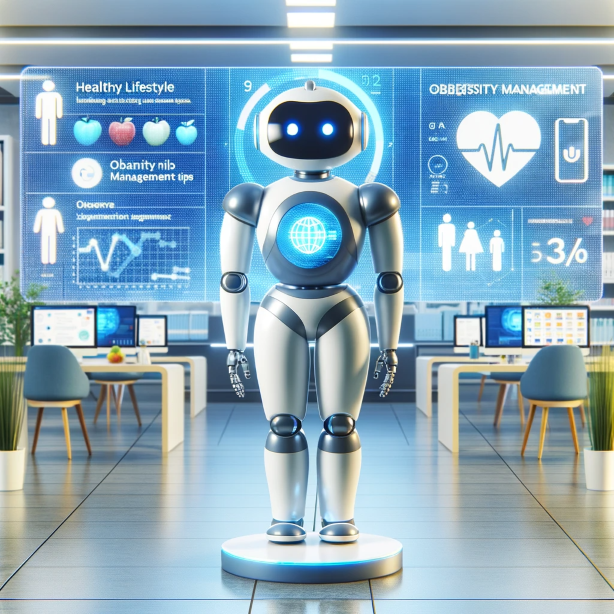Introduction In the rapidly evolving field of healthcare, the integration of technology, particularly AI-powered chatbots like ChatGPT, is playing a pivotal role in transforming patient care and clinical research. This blog post explores the potential of chatbots in supporting clinicians and patients in managing obesity and related lifestyle behaviors, a topic of increasing importance in our battle against obesity.
The Role of Chatbots in Obesity Management Chatbots, with their advanced AI capabilities, are emerging as valuable tools in the field of obesity management. Here’s how they’re making a difference:
- Information Dissemination: Chatbots like ChatGPT are equipped to provide patients and clinicians with instant access to a wealth of information regarding obesity management. This includes dietary guidelines, exercise recommendations, and general health advice.
- Behavioral Interventions: Through personalized interactions, chatbots can offer guidance on behavior change, essential for managing obesity. They can tailor advice on nutrition, physical activity, and lifestyle modifications to individual needs.
- Enhancing Health Literacy: Particularly among younger demographics, chatbots are proving effective in improving health literacy. They offer a friendly and accessible way for adolescents and young adults to learn about healthy habits.
- Patient Monitoring: AI-driven chatbots can play a role in patient monitoring, offering personalized health recommendations based on individual data, thus aiding in the management of obesity.
Limitations and Challenges Despite their potential, the use of chatbots in obesity management is not without challenges:
- Limited Evidence of Efficacy: There’s still a need for more research to solidly establish the efficacy of chatbots in diet and weight management.
- Evaluation Measures: The lack of standard measures for evaluating chatbot interventions poses a challenge in assessing their effectiveness.
- Privacy Concerns: The use of chatbots in clinical settings raises questions about data privacy and security.
- Specialized Knowledge: General-purpose chatbots might not always offer the specialized knowledge required for specific medical domains.
- Theoretical Frameworks: The effectiveness of chatbots could be enhanced with more interdisciplinary work and the development of theoretical frameworks.
Future Directions The future of chatbots in obesity management is promising but requires concerted efforts:
- Research and Development: Continued research into the effectiveness of chatbots in dietary and weight management is essential.
- Interdisciplinary Collaboration: Bringing together experts from AI, nutrition, psychology, and medicine can lead to more effective chatbot interventions.
- Data Security: Ensuring the privacy and security of patient data must be a priority in the development of medical chatbots.
Conclusion Chatbots like ChatGPT have the potential to revolutionize obesity management, offering innovative solutions to both patients and healthcare providers. While there are challenges to be addressed, the future looks bright for AI in healthcare.
SEO Keywords: Obesity Management AI, Chatbot Health Advice, AI Obesity Research, ChatGPT Healthcare, Patient Monitoring AI.
Disclaimer: AI-generated medical content is not a substitute for professional medical advice or diagnosis; I hope you found this blog post informative and interesting.
DALL-E Prompt for Image: A futuristic robot in the form of a friendly chatbot, standing in a healthcare setting, surrounded by digital screens displaying healthy lifestyle tips and obesity management charts. The robot has a sleek, modern design with a comforting presence, symbolizing the integration of AI technology in healthcare.
